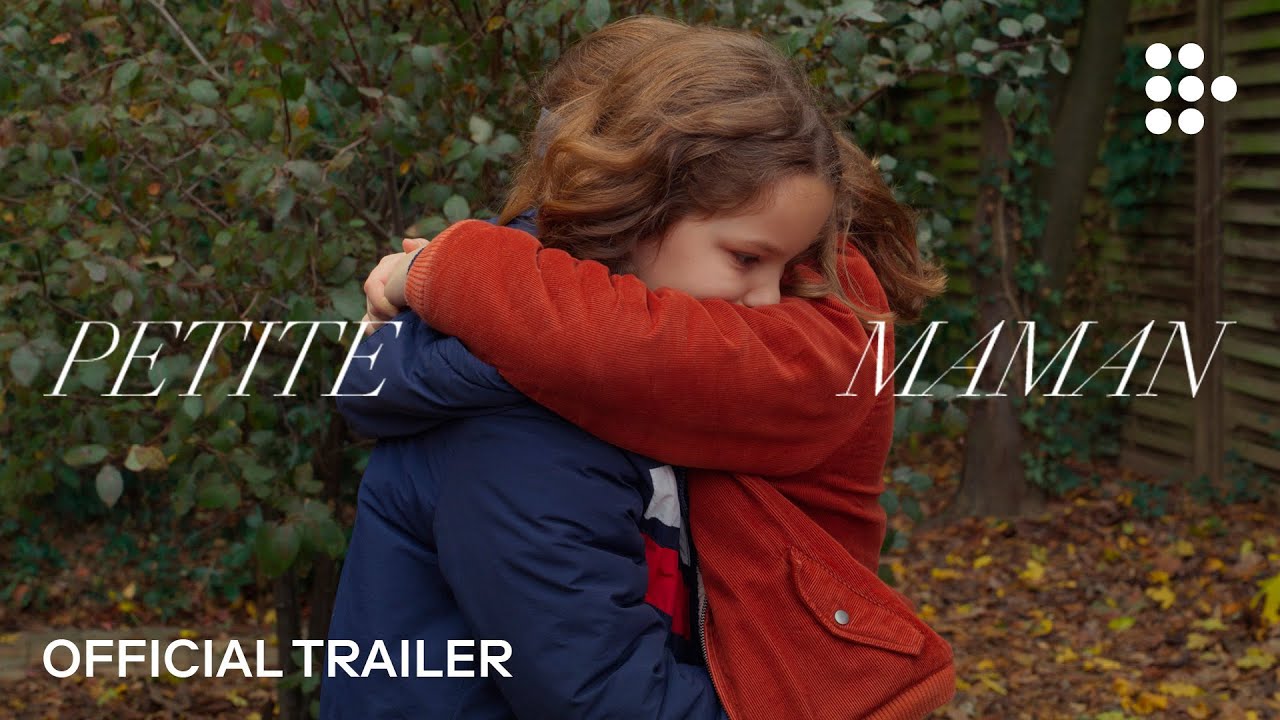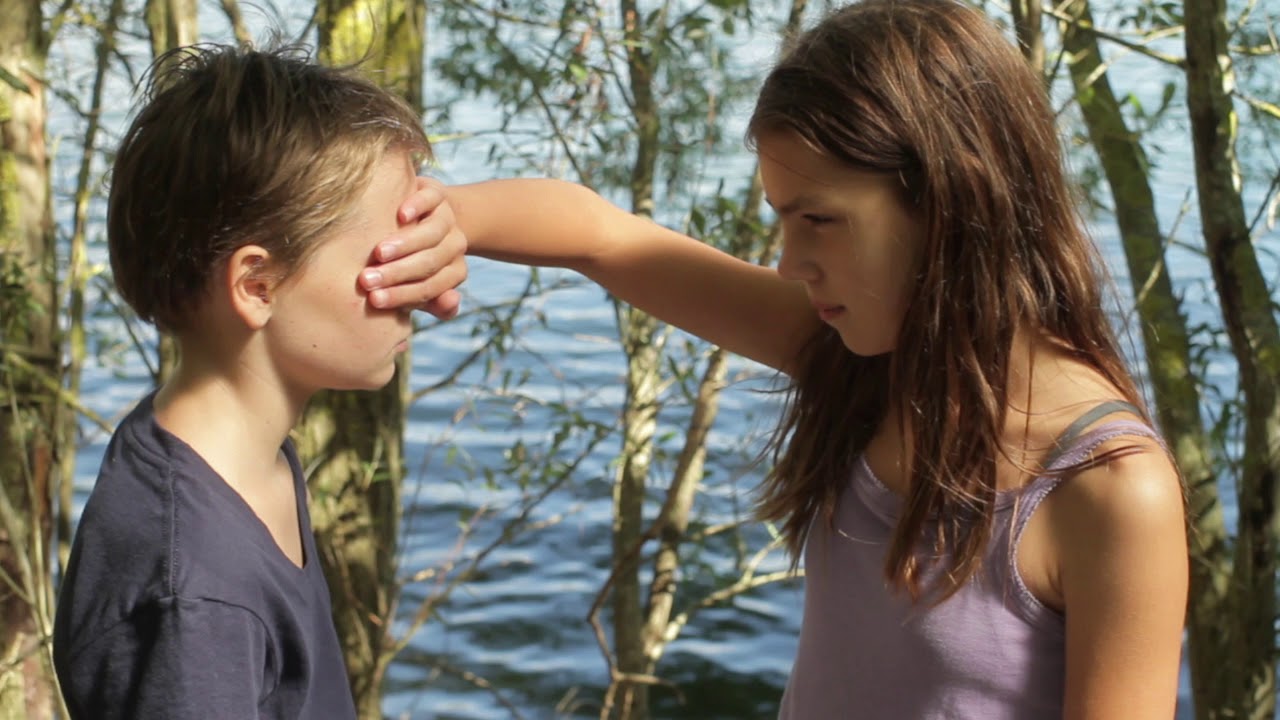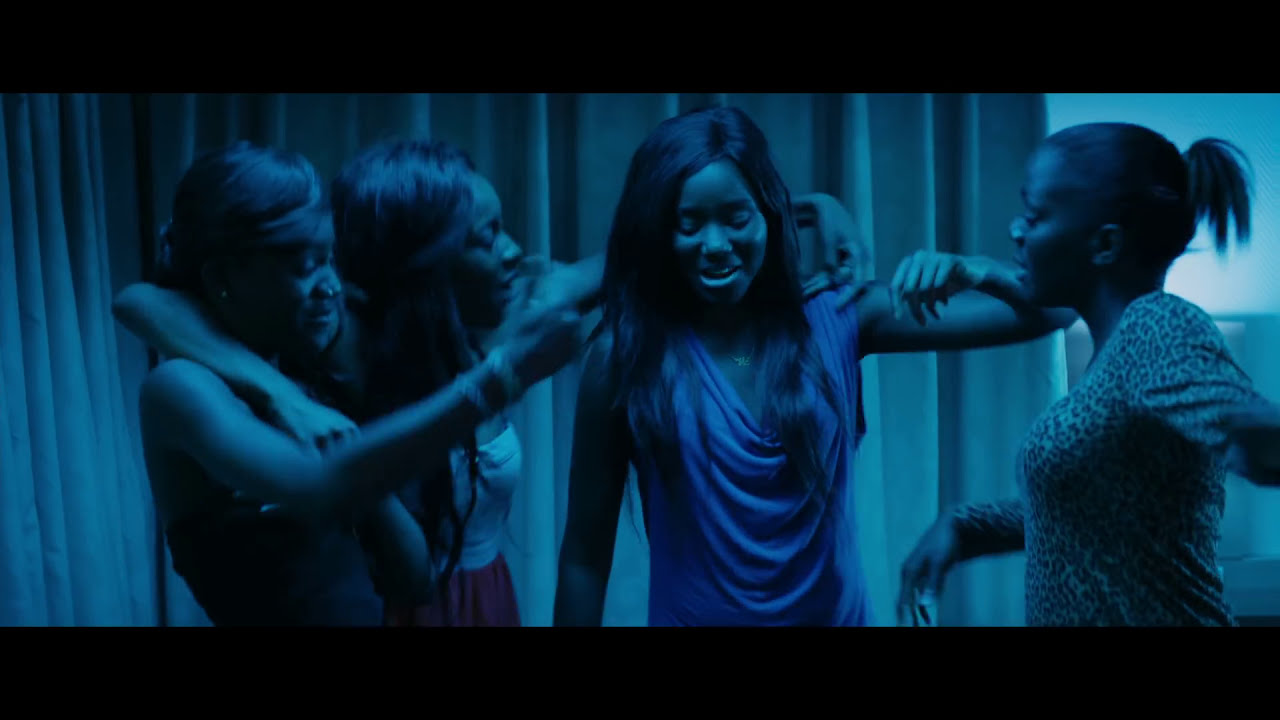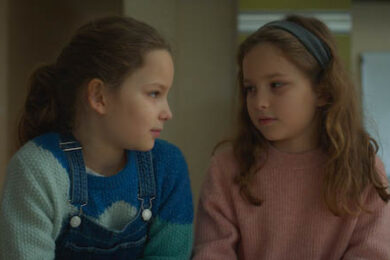A lack of music makes intimacy more potent and hidden interiorities burn brighter in the films of Céline Sciamma. Most have next to no score, save a main theme or exclusively diegetic sound. But such infrequency makes the application all the more thoughtful. Instead of telling audiences what to feel, Sciamma witnesses how music affects a character and those they share it with. It’s the act of listening which matters most.
Sciamma’s latest, the childhood fantasy Petite Maman, has two young characters listen to a song together, a scene mirrored in her earlier films. The pre-adolescent transgender child at the centre of 2011’s Tomboy and the group of Black teenager girls struggling for identity in the Parisian banlieues in Girlhood (2014) also share a musical communion. Their collective appreciation reveals how the filmmaker sees the impact music can have on children, creating a private space where they feel transformed, where something is expressed beyond the power of the words.
In Sciamma’s films about pre-adolescence, private spaces are crucial because adults wouldn’t be able to understand the relationships that make them happy. In Petite Maman, Nelly discovers an eight-year-old version of her mother Marion playing in the woods, and this magical realism gives way to a close friendship. As their goodbye approaches, Nelly plays a song for Marion – an original piece by frequent Sciamma collaborator Para One, which she introduces as “music of the future”.
It’s a soaring electronic and choral tune, capturing the intensity of this unique friendship and the playfulness of its fantastical nature. The moment feels private because Nelly is gifting her friend something adults wouldn’t understand. Even if time travel made sense to Nelly’s dad or Marion’s mother, there’s a gulf between older and younger minds where parents simply reject the existence of fantasy their children instinctively believe in. For Marion, the music Nelly shares is not questioned; its beauty is simply accepted.
But the song in Petite Maman appears at the end of Nelly and Marion’s friendship, at a moment where they can reflect on the ways they’ve affected each other. In Tomboy, the sweet and poppy ‘Always’ (also by Para One) soundtracks characters experiencing a joy that acts as the zenith of our characters’ happiness, but they’re unaware how soon it will be taken away. After moving to a new apartment building at the height of summer, a young girl, Laure, invents the persona of a boy, Mickäel, to adopt when playing with the neighbourhood kids. Concealing their new identity from their family, they grow more confident living as Mickäel, so spend time with a girl, Lisa, without any of the other children. They clearly like each other, but their awkwardness around the issue suffocates conversation, and they don’t quite know what to do around each other. Cue ‘Always’.
In her bedroom, Lisa invites Mickäel to dance, and soon they’re both throwing their limbs around the room away from not only the intrusive presence of their childish peers, but also their parents. Mickäel may not understand the meaning of being transgender, but they’re astutely aware that if their parents discovered their secret identity, they’d see Mickäel as deceitful and dangerous. Mickäel can’t express why their male persona feels right, but they know who’d think it was wrong. The repeated line in Para One’s song, “I’ll love you always,” earns a melancholic quality when considering the transience of Mickäel’s existence.
Music can do more than create an intimate space, transforming those within it. In Girlhood, Marieme lives with her impoverished family, including an abusive brother, in high rise social housing. When she finds a crew of confident, abrasive and protective girls, they accept her into their fold, something crystallised with the help of Rihanna’s song ‘Diamonds’.
Marieme has joined the girls for a night out, where they all dress up for a private all-nighter in a hotel room. With Marieme lounging on the bed, the gang’s leader Lady begins her performance, looking straight into the camera and lip-syncing to Rihanna. ‘Diamonds’ may have a pounding club rhythm, but also more soulful lyrics than other Rihanna megahits. Lady, soon joined by the other girls, gives a performance that’s overdramatic but still authentic, appropriating the chart topper to give it a new purpose; a way for these girls to feel powerful, free.
As the chorus kicks in, Marieme crosses the line from spectator to performer, and like in Tomboy, the characters enjoy euphoria away from the outside world. Sciamma suggests that music can help us understand how we want to be seen; as explosive a presence as Rihanna, or just a reflection of who we feel like on the inside. It’s not that Marieme or Mickäel are changing into someone else, but the world around them instead transforms in their favour.
Yet the simplest, most poignant effect of diegetic music allows songs to transmit feelings better than words. Music stretches beyond its sound, our reactions bound to what we’re hearing, and each listener defines what the song means regardless of the artist’s intention.
Sciamma often lingers on what happens when the song ends – girls fast asleep on one king-size bed, or the joined hands of Mickäel and Lisa. The shift back to reality feels like a letdown, provoking confusion and dissatisfaction in ways these characters can’t express. These young people can’t articulate their churning feelings, but music offers a brief, clear glance at what they wish their life was. You saw it too, right? they think. It’s not just in my head.
Petite Maman is the one Sciamma title using a song originally composed for the film. It makes sense: music from the future should be completely unheard of. But an act of ownership still takes place between Nelly and Marion, as their listening defines the song as a marker of their friendship – concrete evidence that their tiny transcendence happened. Céline Sciamma’s films are about people who grow blisteringly close to one another, before coming apart and having to familiarise themselves with loneliness once more. Music is what binds us to them while they’re here, and what we hold onto when they’re gone.
Petite Maman is in cinemas from November 19






